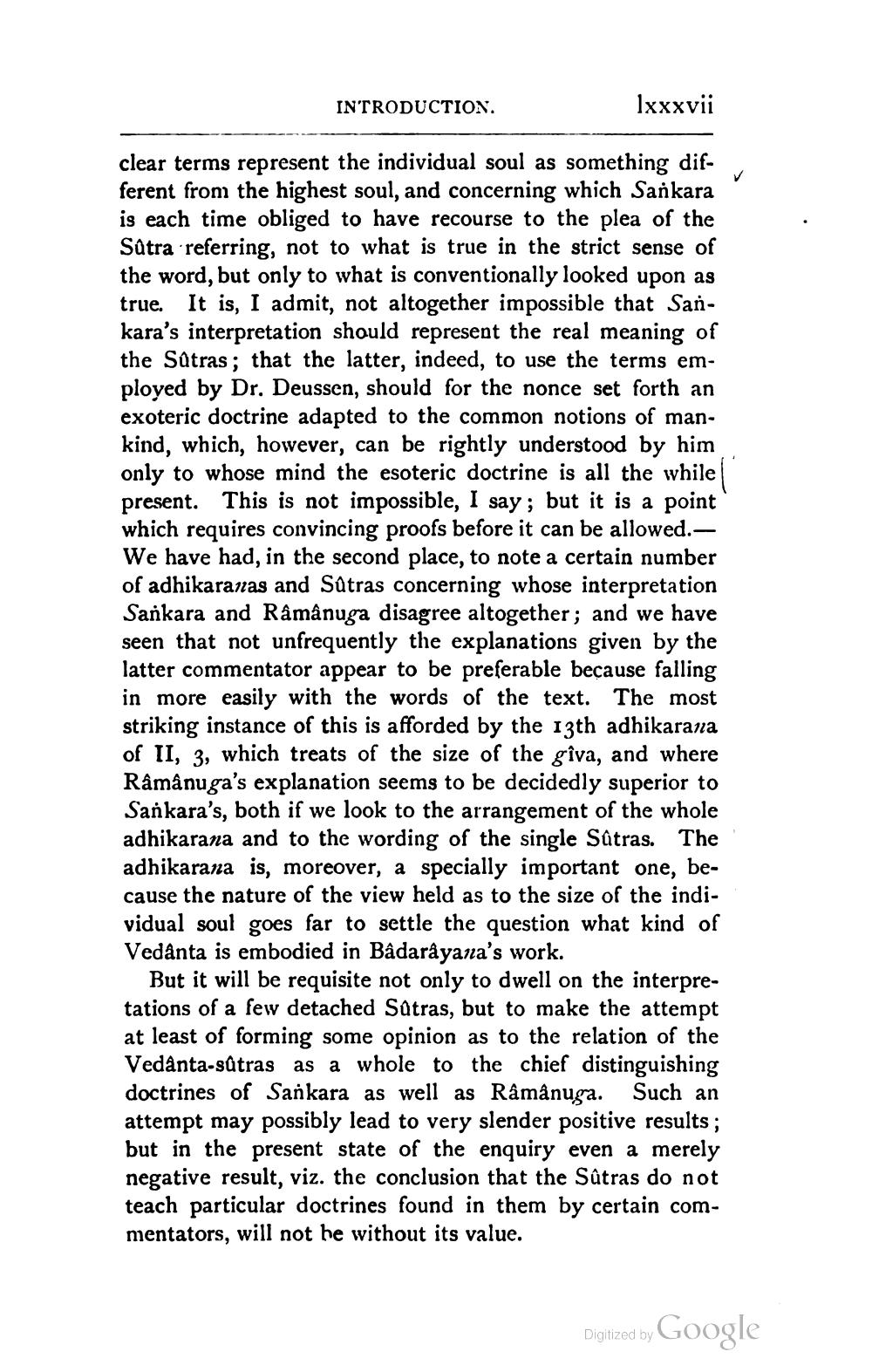________________
INTRODUCTION.
1xxxvii
clear terms represent the individual soul as something different from the highest soul, and concerning which Sankara is each time obliged to have recourse to the plea of the Sätra referring, not to what is true in the strict sense of the word, but only to what is conventionally looked upon as true. It is, I admit, not altogether impossible that Sankara's interpretation should represent the real meaning of the Sûtras; that the latter, indeed, to use the terms employed by Dr. Deussen, should for the nonce set forth an exoteric doctrine adapted to the common notions of mankind, which, however, can be rightly understood by him only to whose mind the esoteric doctrine is all the while present. This is not impossible, I say; but it is a point which requires convincing proofs before it can be allowed. - We have had, in the second place, to note a certain number of adhikaranas and Sūtras concerning whose interpretation Sankara and Râmânuga disagree altogether; and we have seen that not unfrequently the explanations given by the latter commentator appear to be preferable because falling in more easily with the words of the text. The most striking instance of this is afforded by the 13th adhikarana of II, 3, which treats of the size of the giva, and where Râmânuga's explanation seems to be decidedly superior to Sankara's, both if we look to the arrangement of the whole adhikarana and to the wording of the single Sûtras. The adhikarana is, moreover, a specially important one, because the nature of the view held as to the size of the individual soul goes far to settle the question what kind of Vedanta is embodied in Bâdarayana's work.
But it will be requisite not only to dwell on the interpretations of a few detached Satras, but to make the attempt at least of forming some opinion as to the relation of the Vedanta-sûtras as a whole to the chief distinguishing doctrines of Sankara as well as Râmânuga. Such an attempt may possibly lead to very slender positive results; but in the present state of the enquiry even a merely negative result, viz. the conclusion that the Sûtras do not teach particular doctrines found in them by certain commentators, will not he without its value.
Digitized by
Digized by Google




